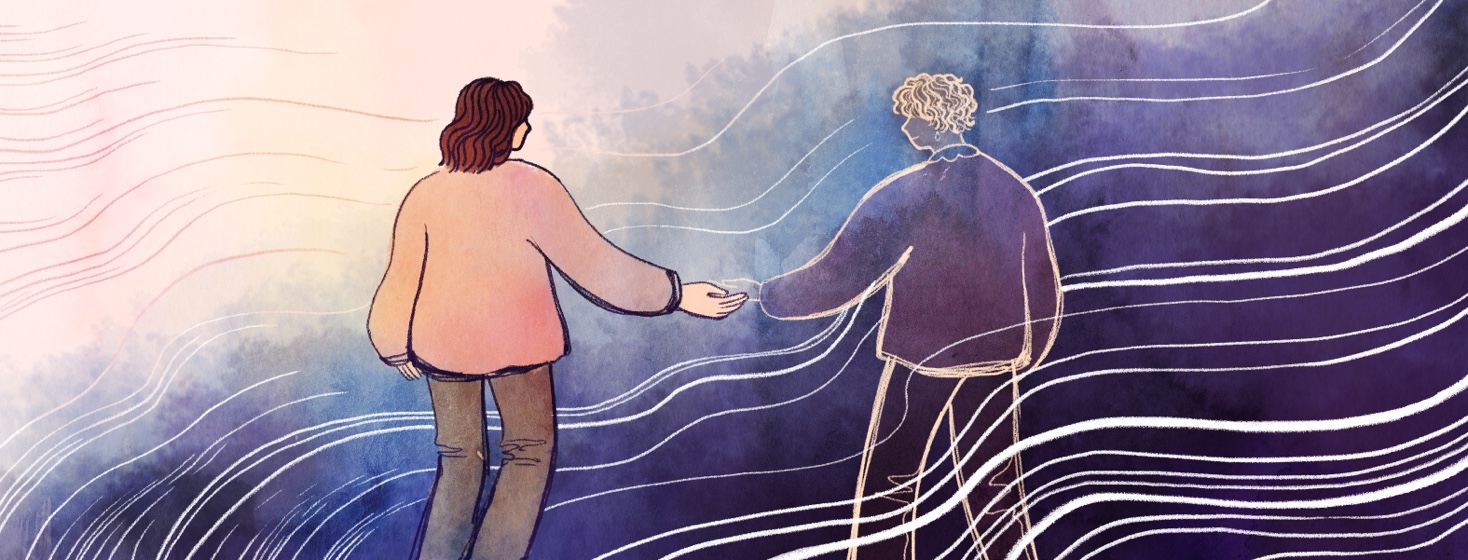Survivor’s Guilt and Ovarian Cancer
There is a lot of information about surviving ovarian cancer and living with ovarian cancer. Especially if your ovarian cancer is found early, such as in stage I, there is a 5-year survival rate of about 90 percent. Overall, the 5-year survival rate for all stages of ovarian cancer is 48.6 percent.1,2
When someone you know dies from the same cancer you have or had, it can bring up a lot of feelings. You might feel guilty or confused as to why you are the one still alive. Guilt is a normal feeling after cancer, and many survivors find themselves dealing with it. This is called survivor’s guilt.3
Ovarian cancer statistics
The American Cancer Society estimates that in 2021, about 21,410 women will get a new diagnosis of ovarian cancer. About 13,770 women will die from the disease. It is the deadliest gynecologic cancer.4
However, more than 80 percent of ovarian cancers are diagnosed at stage II or later, when survival rates are lower. Sixty percent of ovarian cancers are diagnosed at stage III, which has an overall 5-year survival rate of 39 percent.1
While advanced ovarian cancer may not always be curable, it is treatable. There are many treatments that can help shrink the tumor and keep it stable. They can also help you manage any symptoms.
Why do we have survivor’s guilt?
A woman with ovarian cancer is often defined as a survivor from the moment of diagnosis. Many women with ovarian cancer will have a pattern of their cancer coming back (recurrence) followed by treatments. This means the survival path is not a linear one. Survivorship focuses on the long-term management of the disease, rather than only surviving after treatment.5
Classic survivor’s guilt is guilt you feel about surviving something another person did not. Cancer and its treatment can bring a range of emotions and thoughts.
Feelings of powerlessness or helplessness that may be triggered as a result of illness can be overwhelming. Guilt can be a way to protect ourselves from those feelings, since it is something people often feel they can control.3
What does survivor’s guilt feel like?
Survivor’s guilt may not be just guilt for surviving while others have died. There can be a whole spectrum of emotions and triggers around survivor’s guilt.
Survivor’s guilt can be experienced in different ways, including:6
- Loss of a fellow cancer survivor
- Hearing that a fellow survivor’s cancer returned
- Being diagnosed at an earlier stage than others
- Having an easier time with your treatments than other people
- Passing on certain genes to your children
- Feeling like you are a burden to others, with work or family/friends
- Not being a “good” cancer survivor, like having a positive attitude
- Feeling overly responsible to be there for those who were there for you
There are also many emotions that are part of survivor’s guilt. Acknowledging these feelings and working through them can help you process them and move forward. Dealing with emotions is also part of self-care and your own survival journey.
These emotions may include:6
- Empathy (while this is generally good, heightened empathy can be overwhelming)
- Sadness
- Anger
- Grief
- Anxiety
- Pressure
Not everyone will have the same emotions. Your emotions may also change over time, depending on what is going on in your life.
How can we manage survivor’s guilt?
Managing survivor’s guilt is part of survivorship. Find a trusted person you can talk to, whether that is a friend, family member, support group, or a professional. Many hospitals or cancer centers offer support groups or counselors for cancer survivors. It can be helpful to use these services.
Other things to keep in mind include:6
- Be gentle with yourself. The cancer journey is hard.
- Feel your emotions
- Know that your emotions may change daily, and that is okay
If you find yourself experiencing survivor’s guilt, talk with your doctor. They can help connect you with a counselor or support group that can help you navigate the emotions of survivorship.

Join the conversation